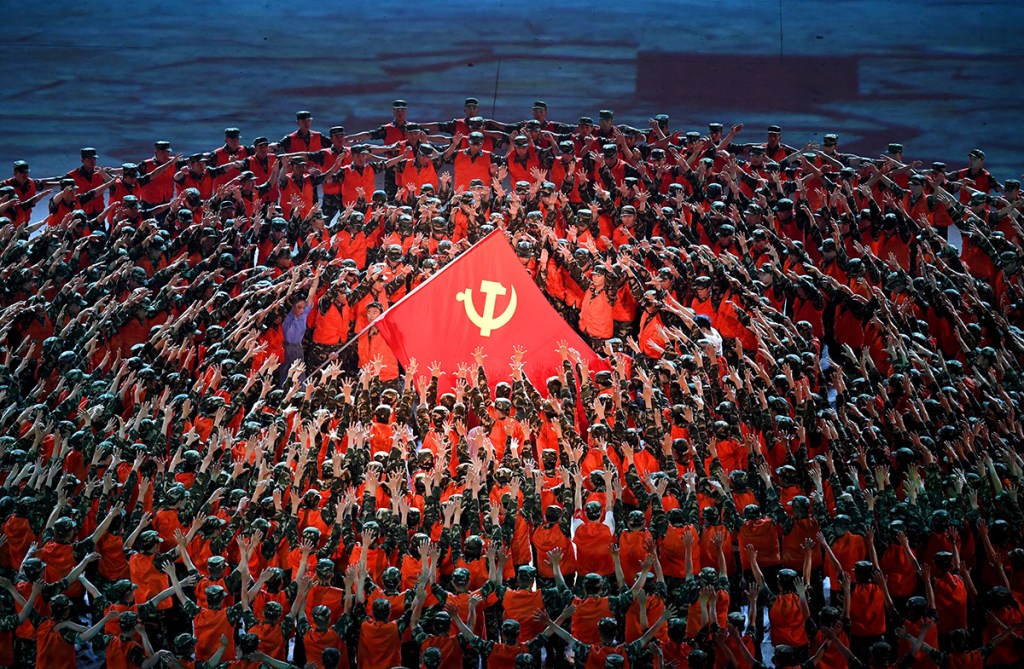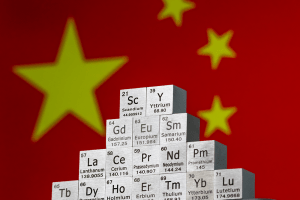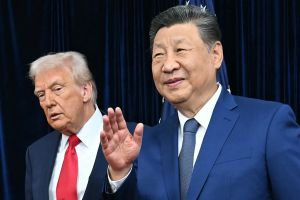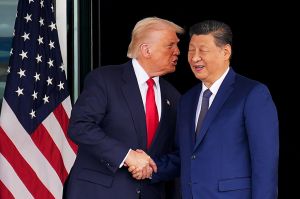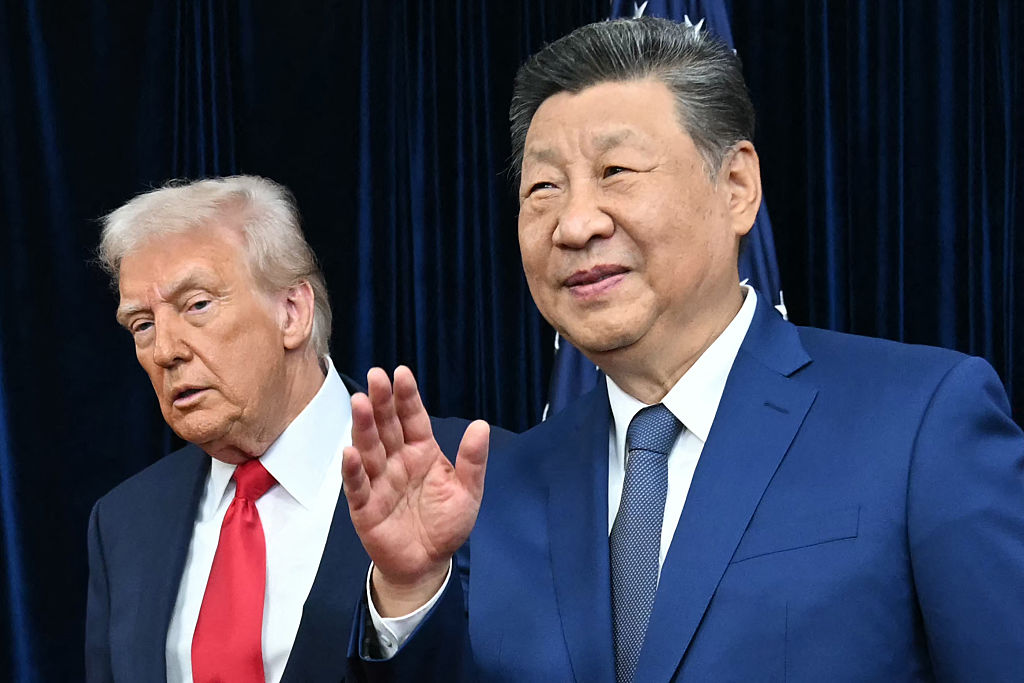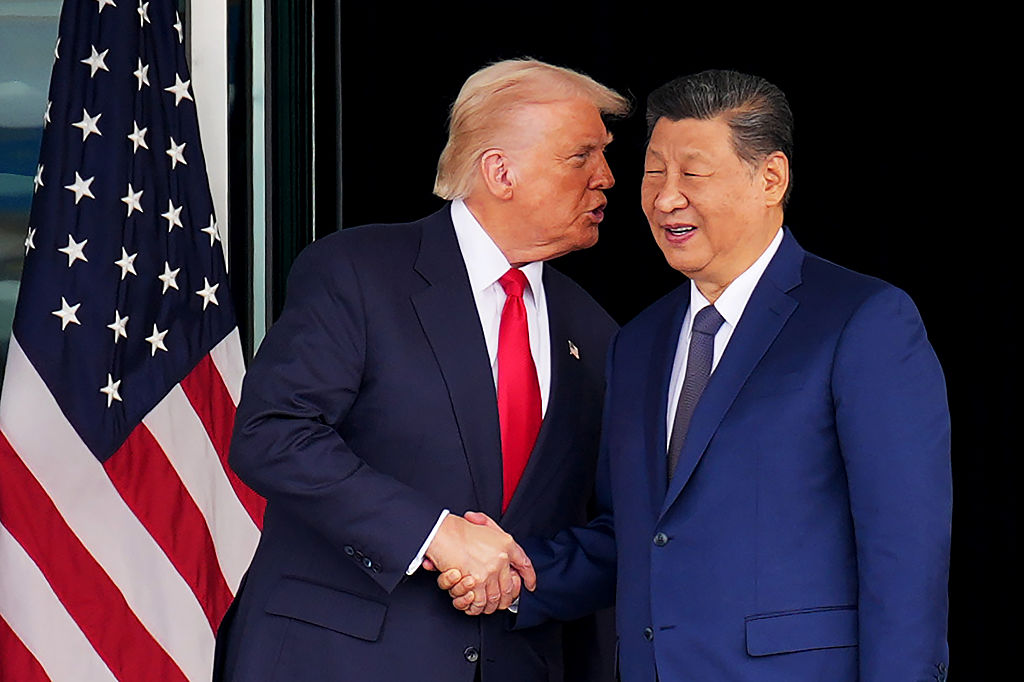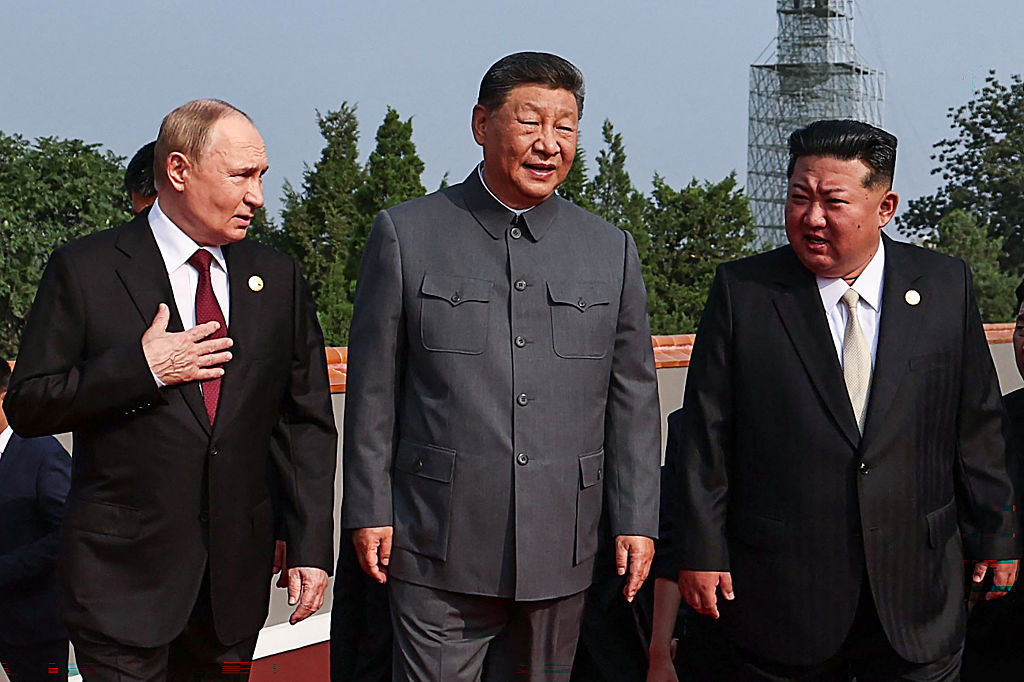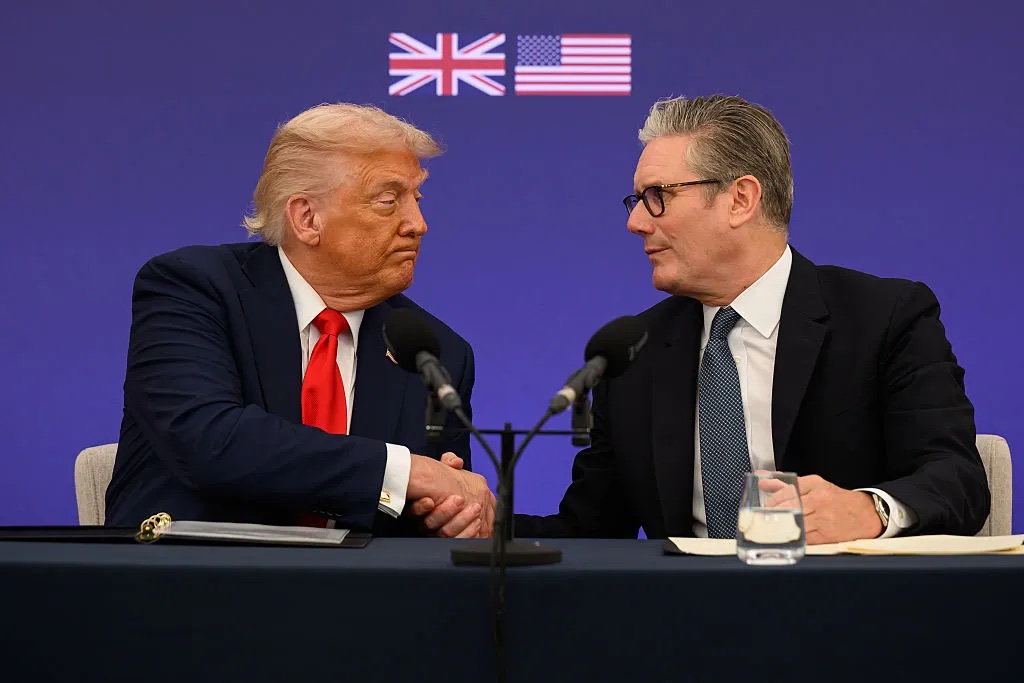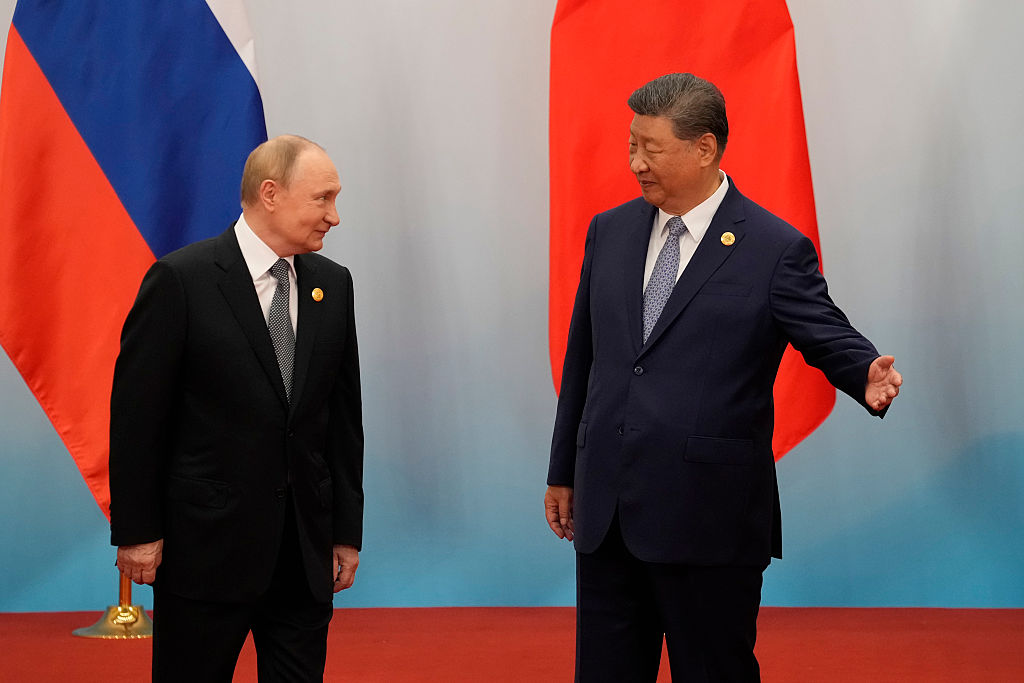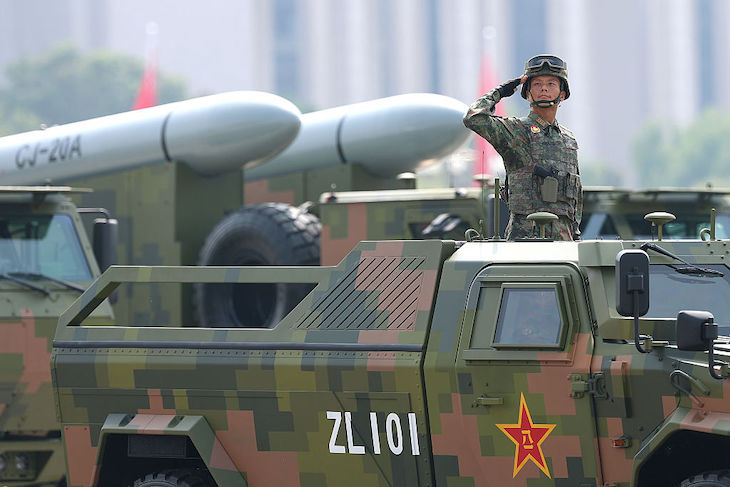This week, the Chinese Communist party celebrated its hundredth anniversary with a powerful statement of self-confidence. What began as an offshoot of the Soviet Comintern with only 50 members now has over 95 million. The party’s imperious rule from Beijing has lasted since the establishment of the People’s Republic of China in 1949. From the assurance on show at this week’s birthday celebrations, it was abundantly clear that dominance is not ending any time soon.
General secretary Xi Jinping struck a militant tone as he addressed a huge crowd at Tiananmen Square on Thursday. Wearing a gray Mao-esque suit, he warned against ‘sanctimonious preaching from those who feel they have the right to lecture us’. The CCP would never allow anyone ‘to bully, oppress, or subjugate [China]’, and those who would do so would ‘find their head broken and blood flowing against a great wall of steel built with the flesh and blood of more than 1.4 billion Chinese people’. Xi’s confidence in the CCP’s history and destiny is unwavering.
But the bullishness about China’s history that underpinned this propaganda blitz was not merely confined to Beijing — it spilled over onto Western airwaves too. Professor Henry Wang, leader of a Chinese think tank, declared on the BBC’s Today program on Monday that he ‘strongly disagreed’ with the claim that Mao was a mass murderer. To Wang, the deaths of tens of millions indelibly associated with Mao’s name in the West could be chalked up as ‘natural disasters’. There was no need to worry about his sources; as Wang told astonished listeners, for ‘Mao’s achievements and mistakes, there’s a party document on that’.
This was hardly surprising. In Xi’s China, there is a party document on everything. The CCP covers its bases by stamping out all narratives other than its own. One year after Xi took power as the party’s general secretary in 2013, the censorship instruction Document No. 9 was leaked. This document was designed to warn against journalistic and judicial independence. Among the long list of taboo topics was questioning the party’s historiography.
George Orwell wrote in 1984 that he who controls the past controls the future. The CCP knows as well as Big Brother that the greatest threat to a communist state is a challenge to the historical narrative from which it claims its authority. Document No. 9 epitomizes this, claiming that independent scholarship was ‘historical nihilism‘ which ‘distort[s] party history and the history of New China’. Independent scholarship can only ‘fundamentally undermine the CCP’s historical purpose’. Only the official history is acceptable.
The CCP has good reason to fear investigation of its own history. Zhang Zhenglong, a former People’s Liberation Army officer who was involved in the CCP’s battles in north-east China, documented the country’s bloody civil war in his 600-page study White Snow, Red Blood. He described the PLA’s 1948 siege of Changchun, where the PLA starved the population into submission and an estimated 150,000 died. According to Zhang, ‘Changchun was like Hiroshima… [the] casualties were about the same. Hiroshima took nine seconds; Changchun took five months.’
The CCP’s rule by fear extends beyond the violence of the PLA. Following the People’s Republic of China’s foundation, Mao initiated an Anti-Rightist Campaign (1957-59), against ‘Rightists’ whose crime was criticizing the party. Some 550,000 died during the campaign; many more did so later in prisons, labour camps, or following summary executions.
Strict political censorship and Mao-worship directly contributed to the CCP’s mounting policy failures. Erratic attempts to overtake the UK industrially ruined China’s agricultural sector. The placing of steel production before growing crops killed at least 45 million people during Mao’s Great Leap Forward of 1958 to 1962. A further 2.5 million died through torture or execution.
The CCP extends its bloody record into foreign affairs. In 1950 Mao intervened in the Korean war to support the totalitarian regime of Kim Il-sung. Some 900,000 Chinese soldiers are thought to have been lost in a war that ground into a stalemate for three years. Meanwhile, the continuing exile of the Dalai Lama highlights that the suppression of the linguistic, cultural and religious traditions of Tibet that began under Mao in 1959 has continued through to the present day.
Yet it was the Cultural Revolution (1966-76) which almost destroyed the social fabric of the mainland. During its radical phase (1966-9) mainland China teetered on the brink of another civil war. Egged on by Mao’s wife Jiang Qing, the Red Guards became so militant that, by 1968, the PLA was mobilized to suppress them. Mao left China divided, with a central state whose authority had been perilously damaged and a youthful population radicalized by his own revolutionary enthusiasm.
In the mid-1980s, Deng Xiaoping continued to rely on heavy-handed policing strategies to control Chinese society. Deng authorized so-called ‘strike hard’ campaigns. Ostensibly directed against organized crime, in reality these often caught political opponents of CCP rule. In under three years as many as 10,000 people were executed. In 1989 Deng made the fateful decision at Tiananmen Square to crack down on China’s nationwide pro-democracy movement. Credible estimates of those killed on that day range between 2,700 and 10,000 victims.
China’s tragedy has been the habitual failure to even contemplate a permanent liberalization of Chinese governance on the part of the CCP. It is true that the run-up to China’s entry to the WTO in 2001 saw a phase of relaxation of government control over the economy. The early 2000s also saw a brief period of greater political space under Hu Jintao. But, since 2012, Xi has reestablished the CCP’s draconian control over its own people.
On several fronts, the party has acted to curb the independence of different communities within China. More than one million Uighurs are currently held in reeducation or labor camps. Tibetans are undergoing a process of being ‘sinicized’. The democratic aspirations of millions of Hong Kongers have been quashed by the illiberal National Security Law. In January 2019 Xi reserved his right to use force against Taiwan. This comes alongside the continuing use of torture, censorship and social conditioning on the Chinese mainland.
But the pomp and glitz surrounding this week’s centenary celebrations belies an unsteadiness on the part of the party’s leadership. The CCP is, like a bully, deeply insecure at heart. At no point during these carefully choreographed events can they ever display any self-criticism or historical knowledge. In the place of regret comes the rise of an increasingly paranoid Chinese security state.
The barrier towards any liberalization on the part of the CCP is the bloodiness of its own history. Exposing its past would mean highlighting not only its endless past crimes against humanity but its continuing abuse of its own people. Every person cheering Xi on as he spoke and in China as a whole has been victimized by the CCP in some way. Despite a long tradition of using control over education and media to shore up popular support, the uncovering of the CCP’s history would result in a reaction far closer to that of another event in Tiananmen Square, 32 years ago.
There can be no hope for a Chinese version of the Peace and Reconciliation Commission of post-apartheid South Africa as long as the Chinese Communist party is in power. So a party preoccupied with maintaining its hold on power is forced to continue to hide its historical mistakes from its own population. For any Chinese citizen who has seen the real brutality of the CCP’s rule, Xi’s proclamation on Thursday that ‘the people are the true heroes, for it is they who create history’ must have sounded as hurtful as it did hollow. The sad truth is that the future of the CCP looks set to match its past — a boot stamping on a human face, forever.
This article was originally published on The Spectator’s UK website.



